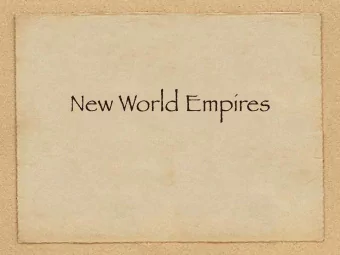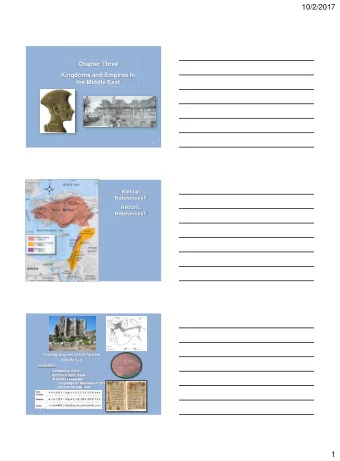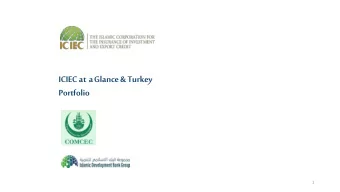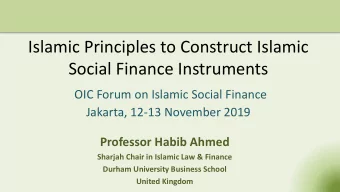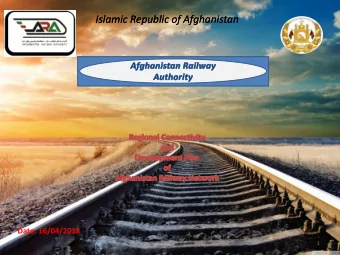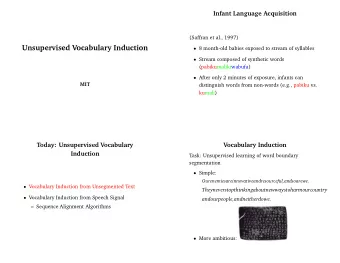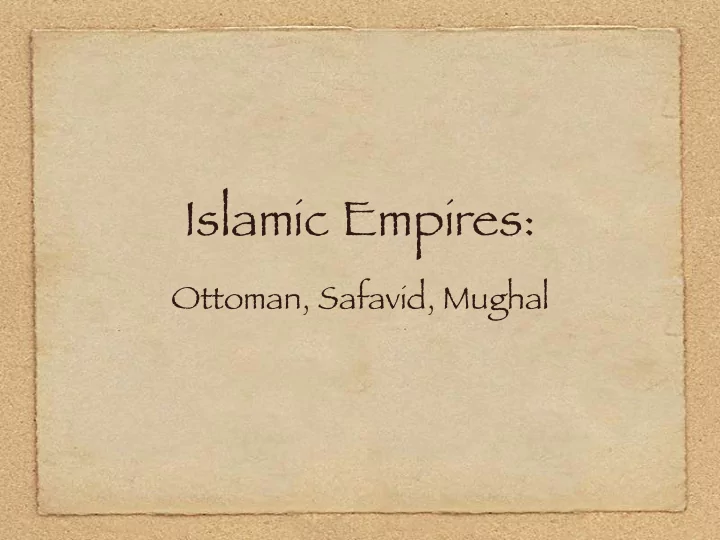
Islamic Empires: Ottoman, Safavid, Mughal The Ottoman T urks as - PowerPoint PPT Presentation
Islamic Empires: Ottoman, Safavid, Mughal The Ottoman T urks as Islamic Eurasian Power (1289-1923) Consolidated by Osman, c. 1300 Expanded by Mehmed II, c. 1450 (Conquers Constantinople 1453) Peaks with Sleyman, c. 1550 Constantinople, c.
Islamic Empires: Ottoman, Safavid, Mughal
The Ottoman T urks as Islamic Eurasian Power (1289-1923) Consolidated by Osman, c. 1300 Expanded by Mehmed II, c. 1450 (Conquers Constantinople 1453) Peaks with Süleyman, c. 1550
Constantinople, c. 1400
The Fall of Constantinople, 1453
Constantinople Istanbul “Islam Abounds”
Istanbul on the Bosporus and straddling Europe and Asia
Ottoman Expansion
Apex of Empire under Süleyman the Lawgiver (r. 1520-1566)
The Suleymaniye Mosque (1550-57)
The Suleymaniye Mosque (1550-57)
The Suleymaniye Mosque T oday
The Suleymaniye Mosque T oday
The Safavid Empire (1501-1722)
The Safavid Empire (1501-1722) Shi’i vs. Sunni Islam Safavid founded by Shah Ismail I (r. 1501-14) Ottoman Sultan Selim I defeats Ismail, 1514 Safavids revived by Shah Abbas (1587-1629)
Imam Square & Mosque in Isfahan
Imam Square & Mosque in Isfahan
Imam Mosque in Isfahan
Syncretism in the Mughal Empire (1523-1858) Islam and Hinduism in Mughal Empire Sufism and Sikhism flourish as well Aurangzeb ends religious tolerance in 17th century
Babur (1483-1530) Founder of the Mughal Empire Descendant T urkish conqueror Timur and Mongol conqueror Genghis Khan Versed in Persian & T urkish Wrote on Islamic law & Sufi mysticism
Akbar (r. 1556-1605) Continued grandfather’s syncretism Patron of Persian & Hindi culture Encouraged use of Urdu and Persian Sought reconciliation between Hindus and Muslims
Guru Nanak (1469-1533) Founder of Sikhism in North India Sikh belief formed around his sayings Drawn mostly from Hinduism Akbar supports Sikhism in Punjab State support wanes post-Akbar
Shah Jahan (1628-1658) Expanded Mughal Empire Moved capital from Agra to Dehli Fashioned a magnificent capital Built T aj Mahal (1630-1653) as tomb for favorite wife, Mumtaz Mahal
The T aj Mahal
Recommend
More recommend
Explore More Topics
Stay informed with curated content and fresh updates.

